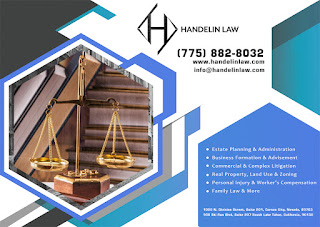Different Aspects Of Personal Injury Laws
Personal
injury laws are defined at state level. A panel of judges and the
members of legislatures sit together to create, modify and amend the
laws. Personal injury law of one state may not be the verbatim copy
of that of another state.
However,
state laws share a lot of similarities as well. While defining
personal injury
laws, generally three torts are taken under consideration -
international torts, negligence torts and strict liability torts.
Three
Torts in Personal Injury Laws:
1. International Torts:
1. International Torts:
International
torts deal with the cases in which the offenders are aware of the
consequences of their actions while committing it. The action is
intentional. Assault, household physical and mental abuses and
workplace bully fall under international torts.
2.
Negligence
Torts:
Negligence
torts consume the lion portion of personal injury laws. Most personal
injury lawsuits are based on negligence torts. The law makes it
compulsory for all the citizens to act responsibly and reasonably
that any other person would do if placed in similar situation. Simply
put, everybody should behave rationally and sensibly so that others
do not get affected for their behavior.
For
example,
a reasonable person would always take steps to remove traces of oil,
water or grease from the floor which accommodates a lot of people
everyday. Now, if a restaurant owner fails to do so and anybody slips
and falls on the floor, the owner is held responsible for negligent
behavior under negligence torts.
3.
Strict Liability Torts:
Strict liability torts deal with a different type of behavior. Here, if the behavior of one person does any harm to another, the victim can sue the offender under strict liability torts. Because his actions injured someone else, the defendant is held guilty. Points like whether he was aware of the consequences or he was not able to conform with normal standards are not at all considered.
Strict liability torts deal with a different type of behavior. Here, if the behavior of one person does any harm to another, the victim can sue the offender under strict liability torts. Because his actions injured someone else, the defendant is held guilty. Points like whether he was aware of the consequences or he was not able to conform with normal standards are not at all considered.
Personal
injury laws for malpractice:
Apart
from torts, personal injury laws in America protect the citizens
against professional malpractice. Medical malpractice and
professional malpractice laws have been introduced to stop unethical
and wrongful actions of professionals including medical practitioners
and
legal services.
Personal
injury laws also deal with product liabilities. This section entitles
consumers sue the manufacturer of a defective product which caused
damage and injury to the users. When a person buys a chair from a
furniture store and falls from it while sitting because the legs of
the chair were broken, the consumer can sue the furniture store or
the manufacturer for compensation.
And
there is a part of personal injury laws that deal with transportation
laws. Automobile, rail road, maritime and aviation accidents cases
use this part of state personal injury law.
How
to make full use of personal injury laws:
To make full use of the personal injury laws, you need to understand the section that best suits your case. You have to decide whether negligent tort or the transportation law is the right ground for your compensation claim case.
To make full use of the personal injury laws, you need to understand the section that best suits your case. You have to decide whether negligent tort or the transportation law is the right ground for your compensation claim case.
Feeling
lost? Do not panic. It is quite difficult for general people. So take
help from personal injury lawyers of your state. State attorneys know
the state personal injury laws better than anyone else.
Generally,
personal injury lawyers and law firms do not ask the victims to pay
attorney fees while filing compensation claim. They collect their
fees from the compensation amount at the end of the case. However,
you may need to pay court costs and some other fees. So talk to your
attorney about the costs; go ahead and apply your rights.



Comments
Post a Comment